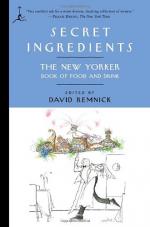|
This section contains 2,030 words (approx. 7 pages at 300 words per page) |

|
SOURCE: "'New Yorker' Fiction," in The Nation, New York, Vol. 154, No. 15, April 11, 1942, pp. 425-26.
Trilling was one of the twentieth century's most significant and influential American literary and social critics, and he is often called the single most important American critic to apply Freudian psychological theories to literature. In the following excerpt, Trilling discusses short stories published by the New Yorker as works of "great moral intensity."
Recently, reading Fielding and Dickens again, I was struck by the change that our time has brought about in the relation of writer and reader. The old literary relation was a "polite" one—literature was assumed to be a means of social intercourse, the reader and writer were supposed to be aware of each other as friends engaged in a matter of common interest. But since the end of the nineteenth century there has grown up a competing—and by now...
|
This section contains 2,030 words (approx. 7 pages at 300 words per page) |

|


